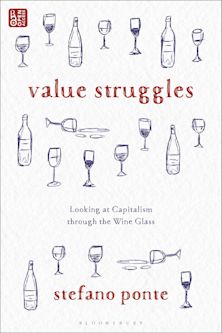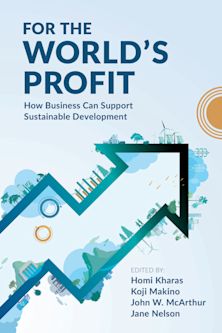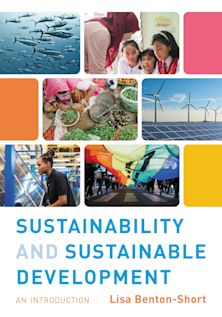Anthropocene Mobilities
Sustainable Travel and Caring for the Commons
Anthropocene Mobilities
Sustainable Travel and Caring for the Commons
Description
Sustainable travel expert Peter Cox shows how individual choices about how to move from one place to another shape the ways we relate to the world and to each other, and in turn, how all this shapes us as people and ultimately affects worldwide problems. If we regularly opt for more physically active forms of transport, such as cycling or walking, we foster qualities needed for living less destructively: we foster good anthropocene citizenship, a way of being in the contemporary world that includes responsibility for the consequences of our actions and responsiveness to the changing needs we encounter. This has important knock-on effects on a global scale: it helps to combat climate change, poor global health, and widespread social inequality, all of which are significantly impacted by the everyday travel habits of ordinary people, and particularly those in the Global North.
For its emphasis on the personal impacts of individual transport decisions and their relations to global social and environmental instability, Anthropocene Mobilities is ideal for students and informed readers eager to contribute to positive change in the world. For its novel application of Hartmut Rosa's theories to the field of mobilities studies, and for its developments of the concepts of anthropocene citizenship and mobile anthropocene citizens, it is also a must-read for scholars of international development, sociology, and environmental studies.
Table of Contents
Chapter 1. Setting the Scene
Chapter 2. Anthropocene citizenship
Chapter 3. Being-in-the-world: care and commoning
Chapter 4. Pedagogies and mobilities: Learning and perception
Chapter 5. Human scale movement: Walking, wheeling, cycling
Chapter 6. Passengers and drivers
Chapter 7. Towards Anthropocene Mobilities
Product details

| Published | Jun 26 2025 |
|---|---|
| Format | Ebook (PDF) |
| Edition | 1st |
| Extent | 216 |
| ISBN | 9781350464766 |
| Imprint | Bloomsbury Academic |
| Publisher | Bloomsbury Publishing |
Reviews

ONLINE RESOURCES
Bloomsbury Collections
This book is available on Bloomsbury Collections where your library has access.


































